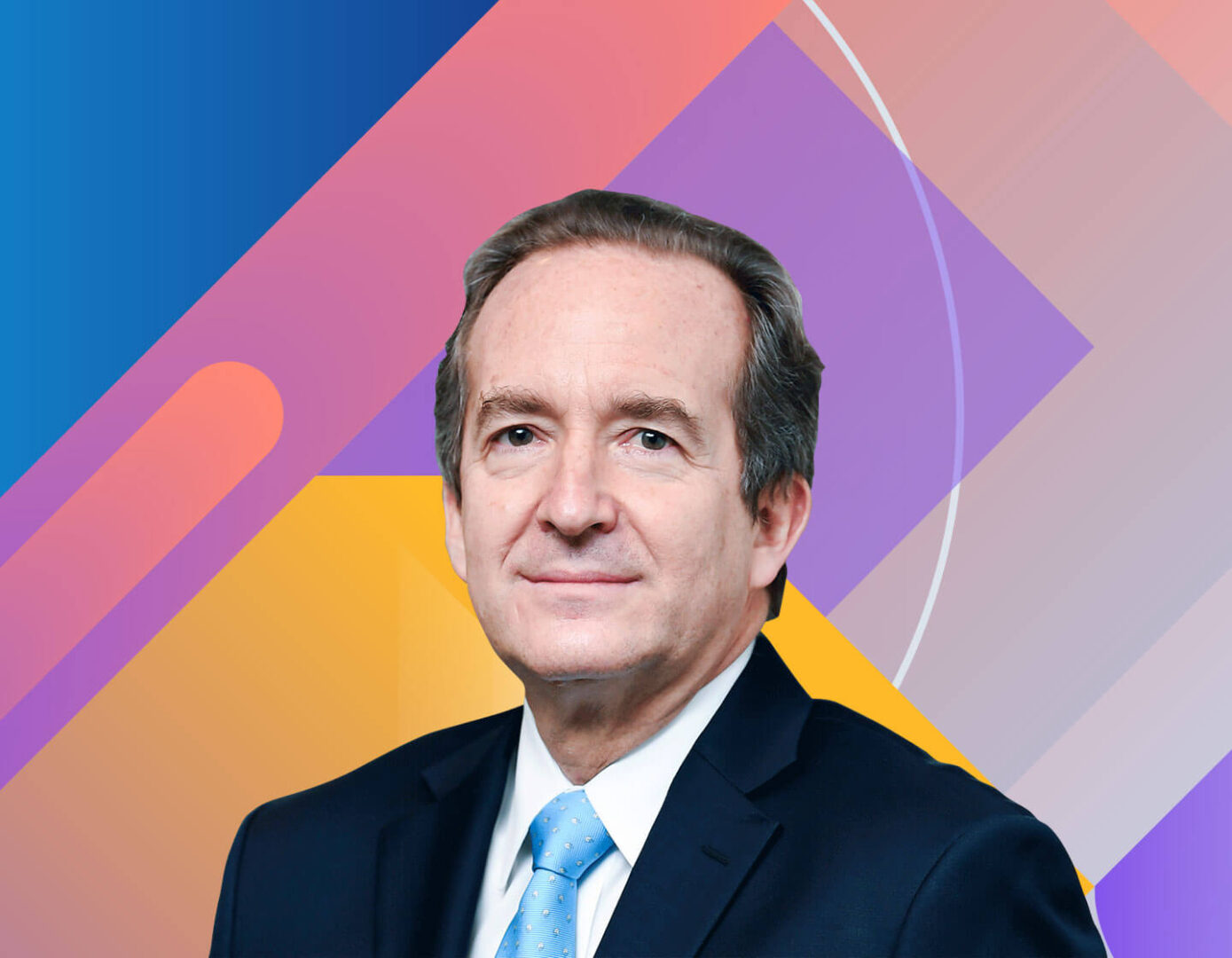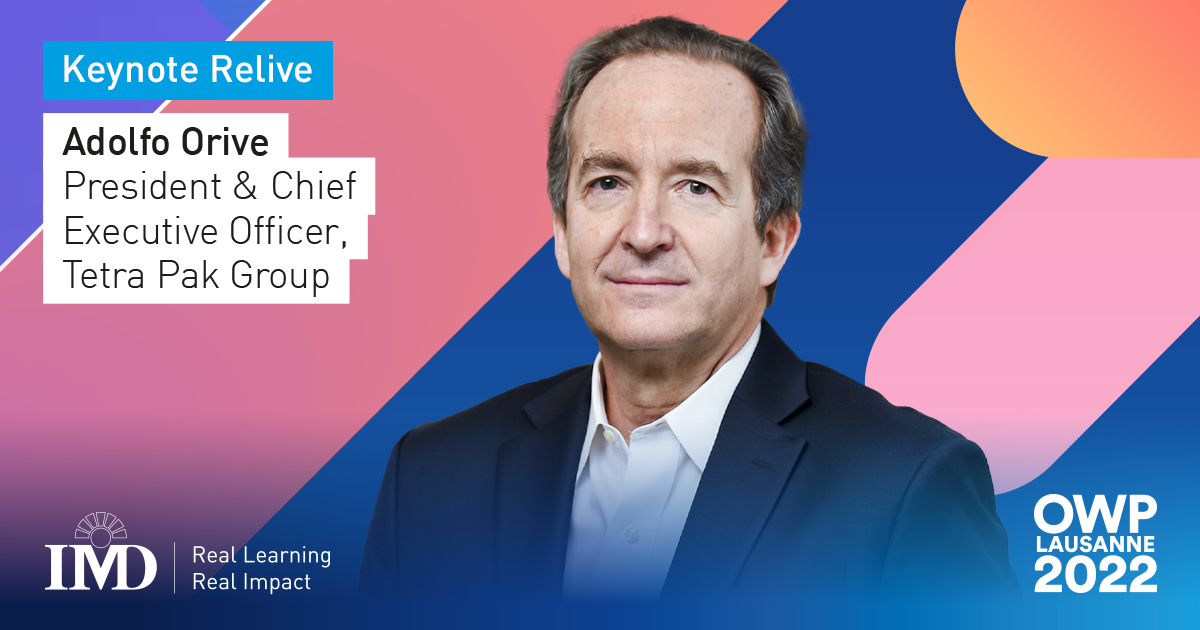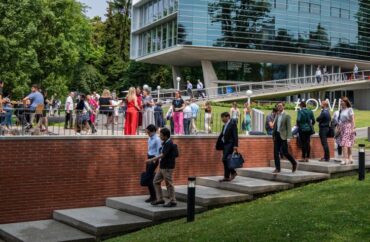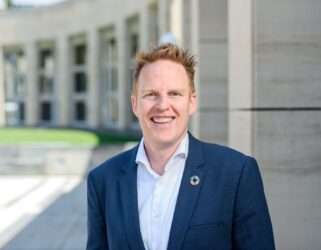
This demands a change in mindset for many CEOs and companies, Adolfo Orive told participants in IMD’s Orchestrating Winning Performance program in his keynote address: to stop seeing sustainability and economic success as a trade-off between conflicting goals, and to see them as necessary and complementary factors in today’s world.
“Sustainability cannot be part of the agenda. It has to be the agenda,” he said. “It doesn’t matter which industry you are in, what type of business you are, who are your customers; sustainability is the agenda that needs to be part of your purpose and part of what you do every day.”
He explored five key themes that inform his approach to driving the world’s leading food processing and packaging solutions company as it faces up to the challenges in the industry, such as climate change, circularity, and food insecurity.
Sustainability is the agenda, not just another box to tick
“Companies in the future will find it difficult to operate if they do not have a strong sustainability agenda supported by facts,” he said. “Sustainability has become the licence to operate.”
However, there also needs to be a strong business case for any sustainability-led transformation, he said, adding that more and more CEOs are seeing future competitive advantages in sustainability.
There is no either/or anymore
While some business leaders might continue to view investing in sustainability and growth or innovation as a trade-off, he said executives should focus instead on finding the sweet spot between ‘doing well’ and ‘doing good’.
“Sustainability used to be ‘either-or’: We focus on sustainability or focus on growth or innovation, but we cannot do everything. That dialogue is no longer valid. Sustainability is an ‘and’, and we need to make sure we change that mindset.”
In the context of the food industry, he said the situation was “even more complex”, balancing areas such as a food security, climate change, circularity, and biodiversity.
“You cannot think of sustainability without all the different aspects of it,” he said. “When you want to balance doing good and doing well, there are a lot of challenges.”
Make big bets on the future
Leaders must find a way to join the dots in a highly-complex present, while also anticipating and taking risks on future opportunities to carve out competitive advantage.
“More today than in the past, the role of CEOs is taking the big bets for the future,” he said. “CEOs need to bet today on what is going to be the future for companies 10 to 15 years from now.”
When calculating these big bets in the food industry, he highlighted four indicators to watch: consumer trends centered on convenience, nutrition, and hyper-customization; digital platforms and factories; faster, smarter, and more sustainable tech; and game-changing business models and value sources, such as new sources of protein and lab-grown meat.
The world is more diverse and multi-speed than we thought
Understanding the markets in which companies operate is crucial. This means grasping global themes and forces, while also appreciating the nuances of regional landscapes.
“We are seeing the end of the era of globalization in the way it has been,” he argued. “The future will be more regionalized and customized. It will also be about different speeds in how the world will evolve and different countries will evolve […] not just about how to balance global versus local, but how to create an organization that is ready for a multi-speed world.”
It’s getting harder, but leaders must get better
Finally, he said that decision-makers had to evolve their leadership skills to ensure they were equipped for an environment that was not going to “get easier”.
“We need to get better,” he said. “We need to unlearn and to learn. What took us here, we can assume most probably, will not take us into the future.”
Having joined Tetra Pak in 1993 as a commercial director in his native Mexico, he drew on close to three decades of international leadership roles to share an ABCD of leadership lessons for orchestrating a sustainability-led transformation: Authenticity, Balance, Collaboration, and Diversity.
Be real
Be authentic and transparent in qualitative and quantitative terms about what your company is doing and what is achievable. That also means being upfront and honest about any shortcomings or vulnerabilities.
“Everything you post or share now has to be fact-based, and you need to be able to commit to that – not greenwashing,” he said. “CEOs and organizations that, in the past, didn’t allow people to be vulnerable, that were so concerned about failures and exposing themselves, will fail. A CEO and leader that is vulnerable is stronger than CEOs who are distant and protect themselves.”
Strike a balance
We should not strive for perfection in one particular area, given all the variables at play. Rather CEOs should seek to balance multiple variables – balance the long- and short-term, balance the heart and mind, balance profit and purpose.
“It’s about doing good and doing well, and the importance of that balance.” he said.
Work with unconventional partners
Collaboration can be a game changer as it allows leaders to pool multiple perspectives and competencies. Think beyond the “traditional”, he said, and engage with unconventional partners, including start-ups and academic institutions.
“Widen your horizons as much as you can,” he said.
Tap into diversity
“Companies become stronger when you really create the mechanisms inside the company to make it grow,” he explained. “Diversity will be even more important in the future. In order to tap into that richness, we need to embed this into our culture.”



